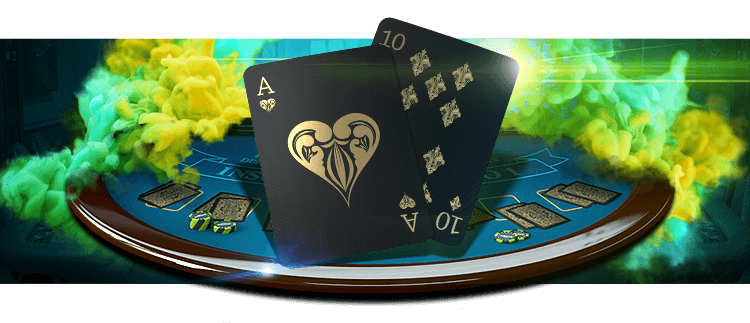Blackjack Strategy: Splitting Pairs
An important part of blackjack strategy is understanding splitting pairs, and knowing when to do so. Whether you’re a fan of classic video blackjack or prefer to take a seat at the table with the latest live blackjack titles, splitting pairs is an element of the game well worth knowing about.
So read on as we nail down the definition of what splitting pairs means, and go through the details of the strategy; including the rules and the various scenarios where it might come into play.

What Is Splitting Pairs In Blackjack?
While you play blackjack you are able perform a move known as splitting. The move can be performed when players are dealt two cards with the same value.
When this happens, players can split them and make two separate hands, receiving a new card from the dealer for each of these two new hands. Then a bet which equals the player's initial wager is placed next to each of the new hands. Once split, most casinos - including in online blackjack - treat the two hands independently, giving players a 'second bite at the cherry', so even if they lose the first hand, they could win the second.
Why Would A Player Want To Split Pairs?
Simply put, splitting offers players the chance to create two potentially winning hands out of a losing hand. For cases in which the dealer busts - that is, when the dealer's hand has gone over the value of 21 - the player is able to double their bet.
To this end, splitting pairs is a part of blackjack strategy which allows you to maximise your profits playing blackjack.
Rules For Splitting Pairs
So how does it work? When you want to split, you must indicate it via a 'v shape' hand signal. Online casinos will offer their own ways in which to make this signal. After the chips for the extra bet are positioned next to the initial stack of chips, the dealer separates the pairs and draws an extra card for each new hand.
If the player receives another pair, they are usually allowed to resplit. It should be remembered that the rules related to splitting pairs can and will vary according to which casino you are playing the game at - whether online or otherwise. In general, players are allowed to resplit when circumstances allow, until they create up to four different hands.
Some tables do not allow the resplitting of aces specifically. In these cases, the house edge will go up by approximately 0.08 per cent. When this rule is in place, only one additional card will be received, and players are typically prohibited from taking a hit afterwards. Due to this variation of the rules, the house edge is boosted by about 0.19 per cent. Some casinos will permit ten-value cards to be split only if they are in the same denomination - such as a pair of queens or 10s.
In general, you are permitted to double down after splitting - known as 'DAS' - and this allows you to increase the action up to eight bets (resplit to four hands, and then doubled down on all four hands). In this respect, DAS is a considerably profitable rule which should be valued by players.
You should note that when a pair of aces are split and a ten value card is drawn next to the ace, this hand is not considered to be a blackjack. Rather, it is counted as a sum of 21, so even money is received should you win.
When Splitting Pairs Is A Good Idea
So when should this blackjack strategy be used?
There are certainly certain hands which mean that the law of probability indicates it is a good idea to split. There are also other hands which you would not be wise to split, given what probability dictates. In the cases of another group of hands, the decision to split should come down to the identity of the dealer's up card.
It should be noted that these rules of thumb do not mean you will win every time - but rather you are more likely to win thanks to the laws of probability over the long term.
Let's break this down further. You should always split pairs with; aces, because there are many cards with a ten value in blackjack - if you choose not to, you will be left with a value of 1 and 11; and eights, because splitting them offers a better chance of a more competitive hand.
And you should never split pairs of; tens, because you can lose the potential of a good hand, which you have a small chance of bettering with your split hands; fours, because with your next hit, you can't go bust, and splitting offers a small chance of bettering this situation; and fives, because this means you have ten and it is a good idea to double down.
As we have mentioned, there also pairs which should or shouldn't be split, depending on the dealer's up card.
So now you know more about the art of splitting pairs. This is an important element of blackjack to get acquainted with if you are to give yourself the best chances of success.
